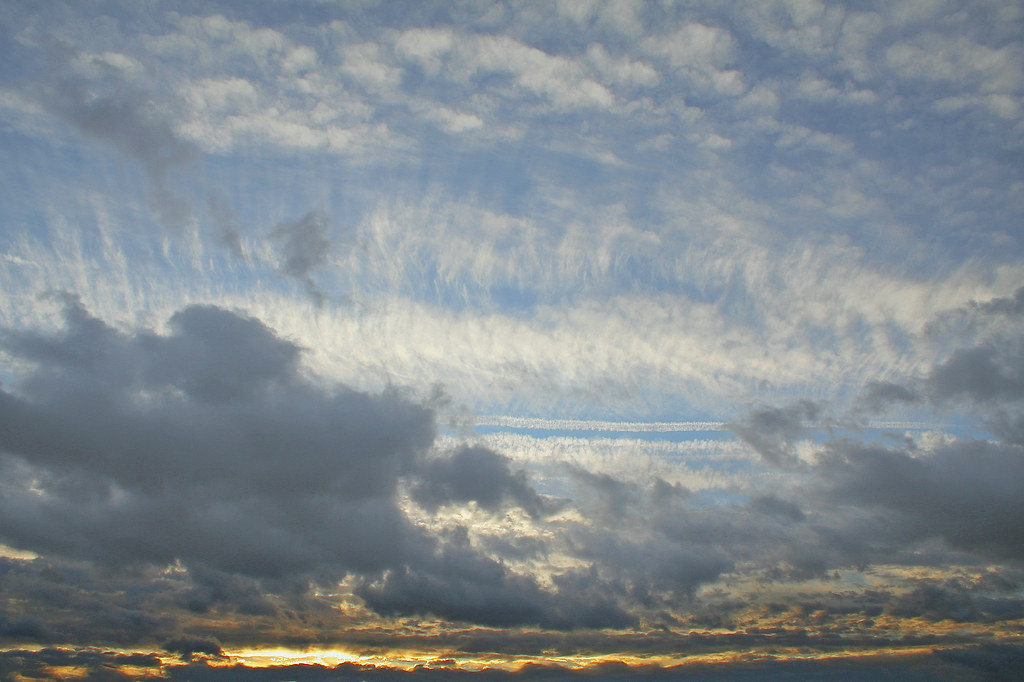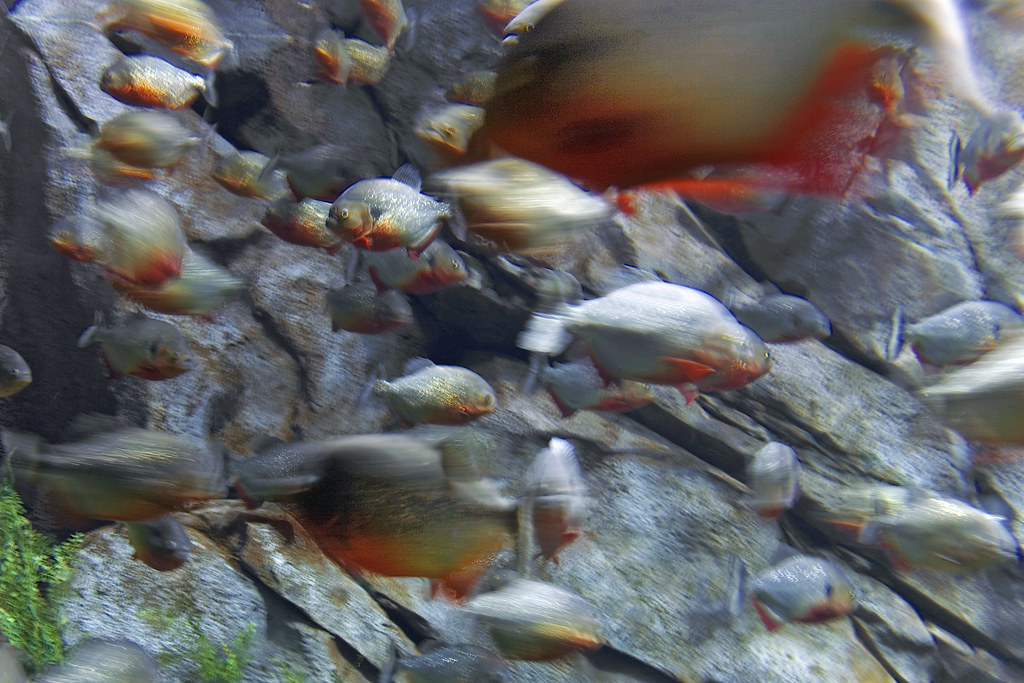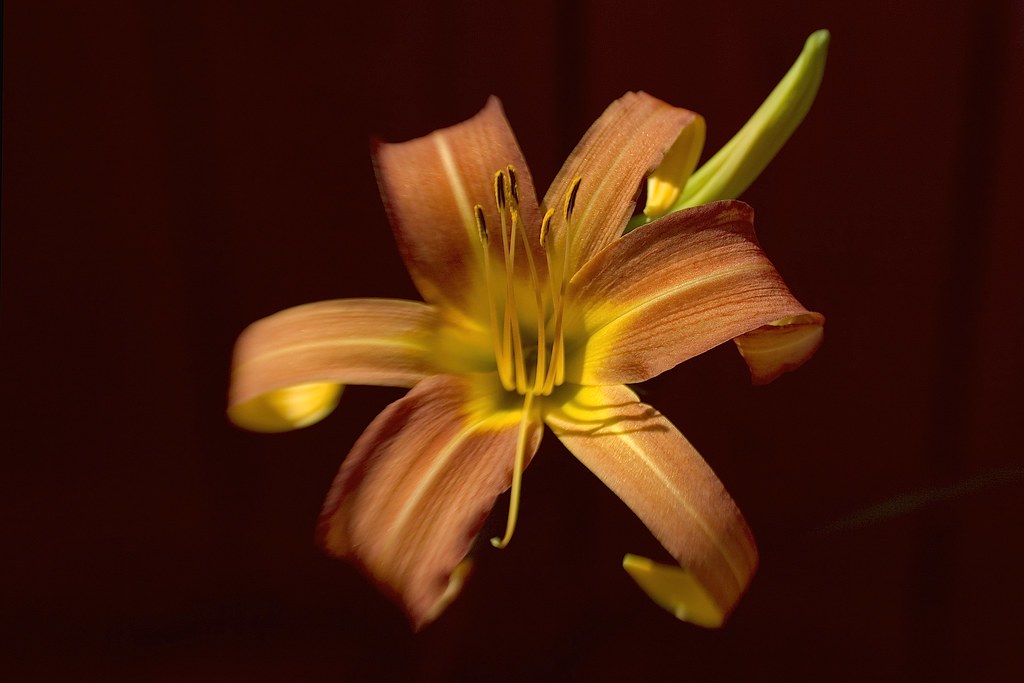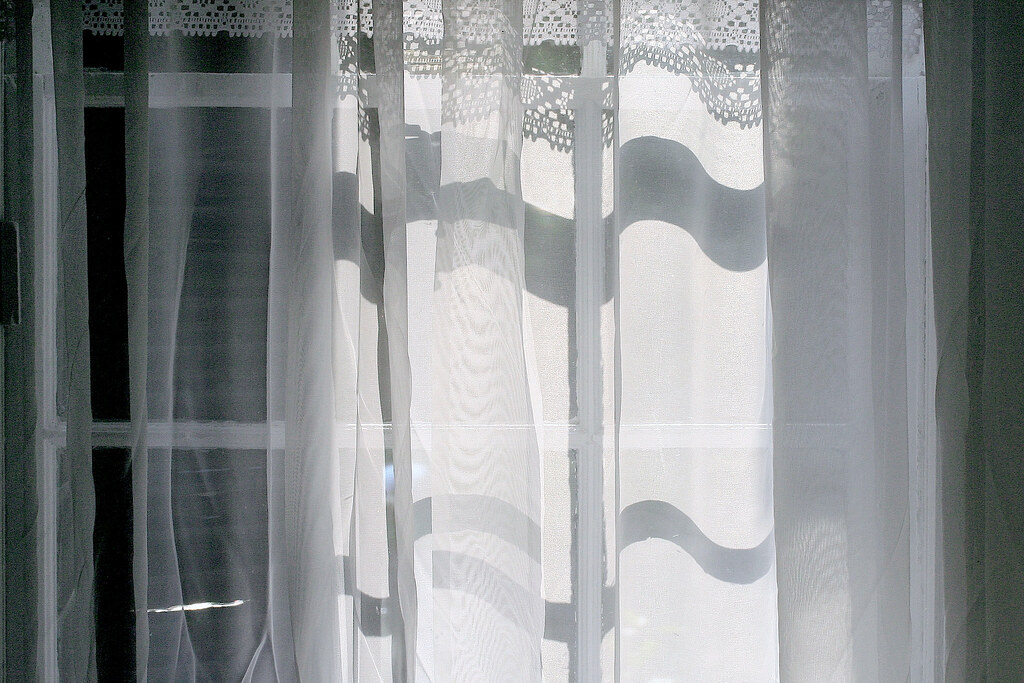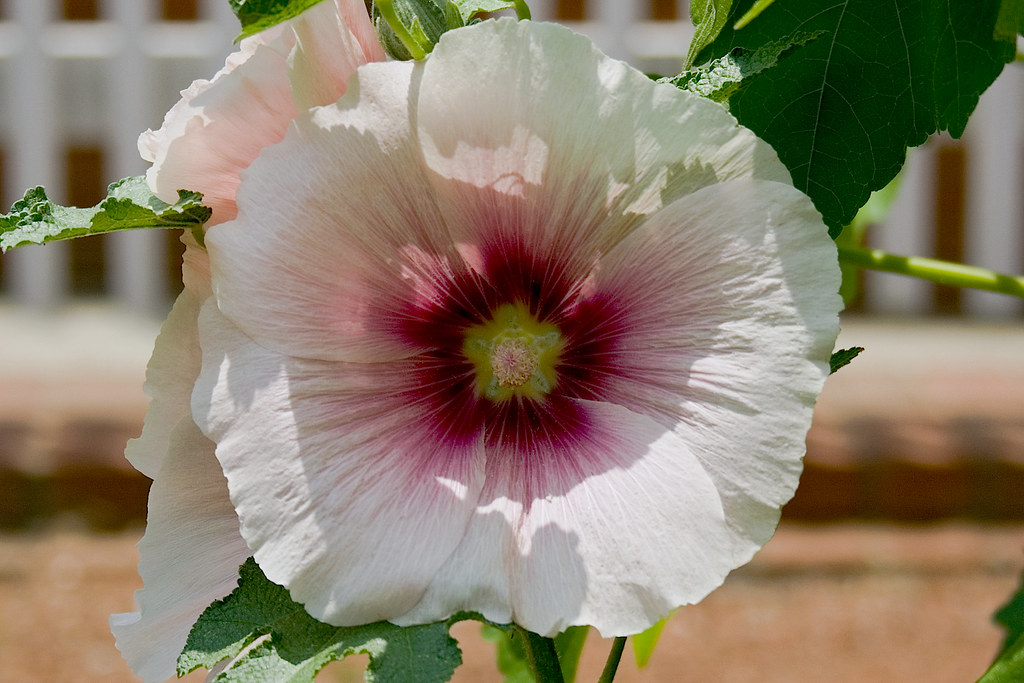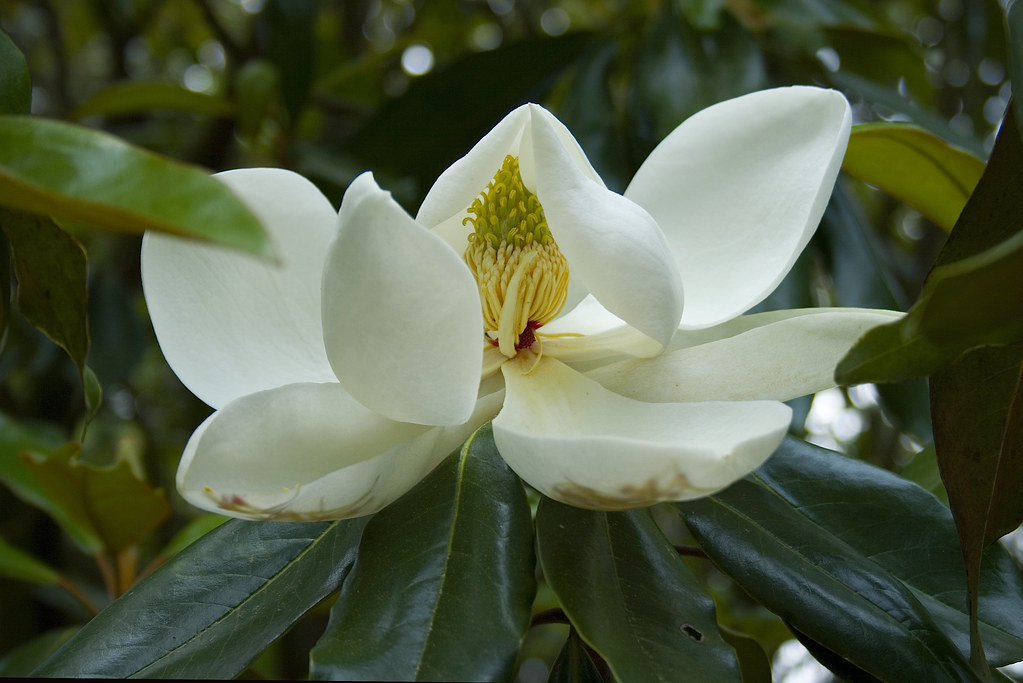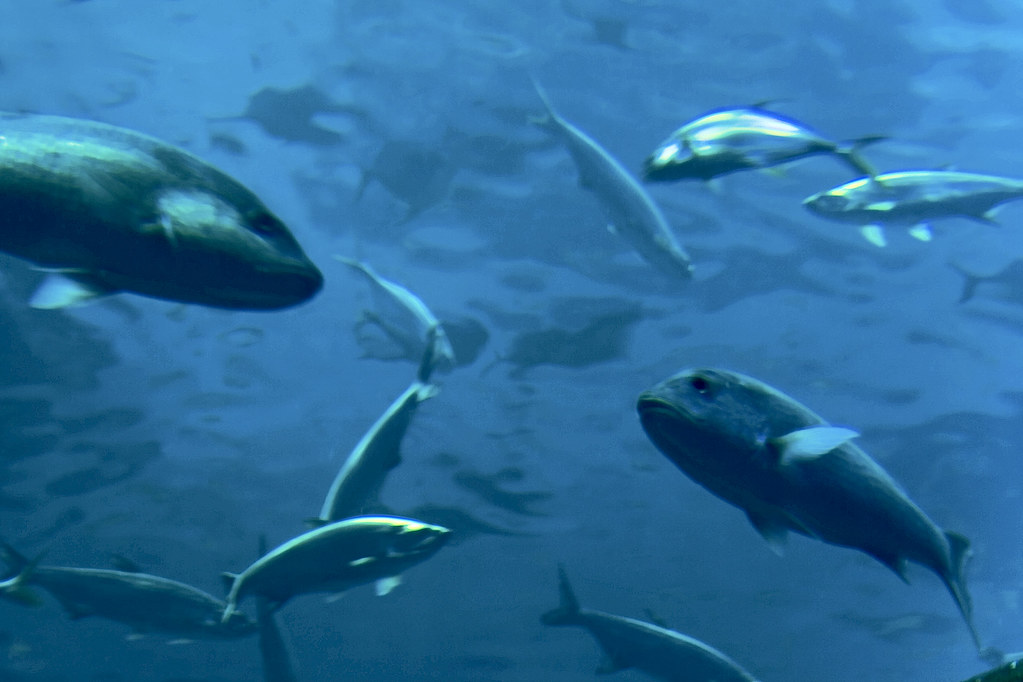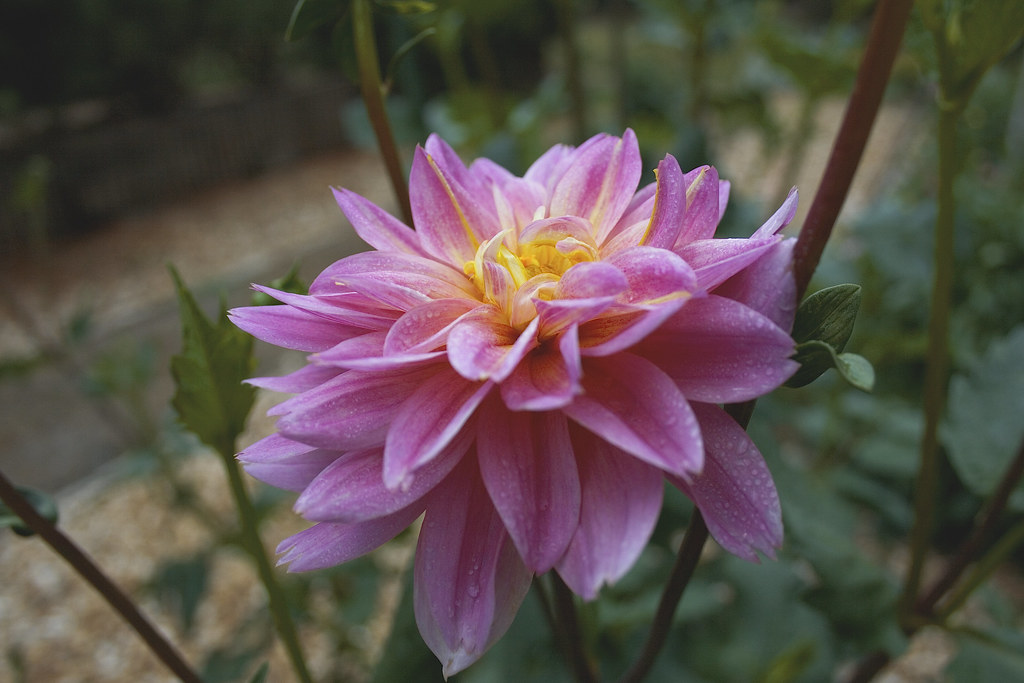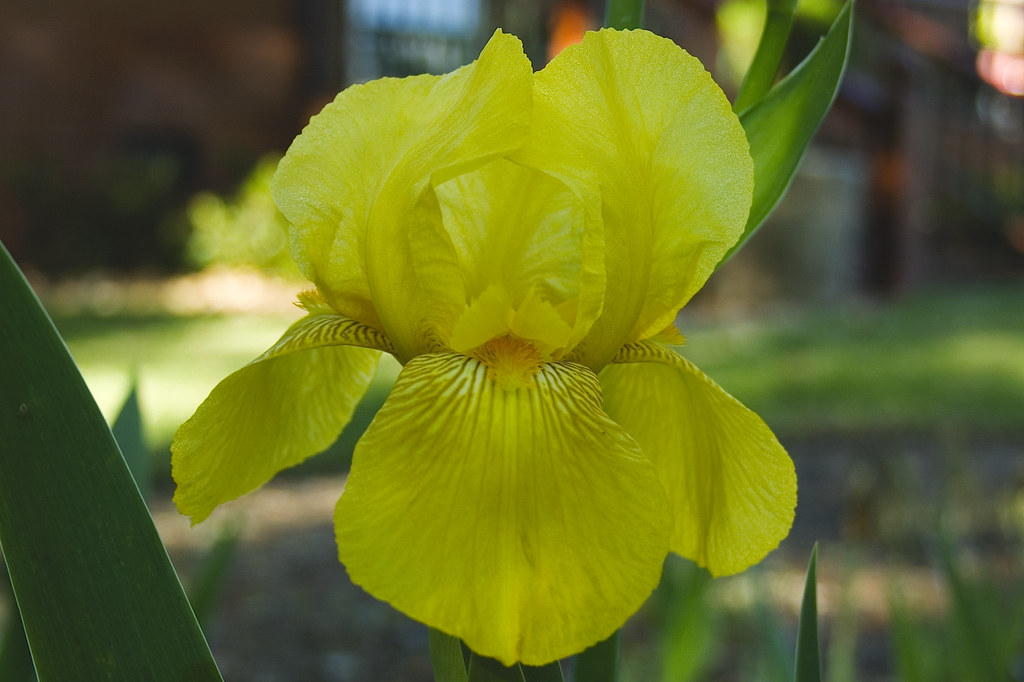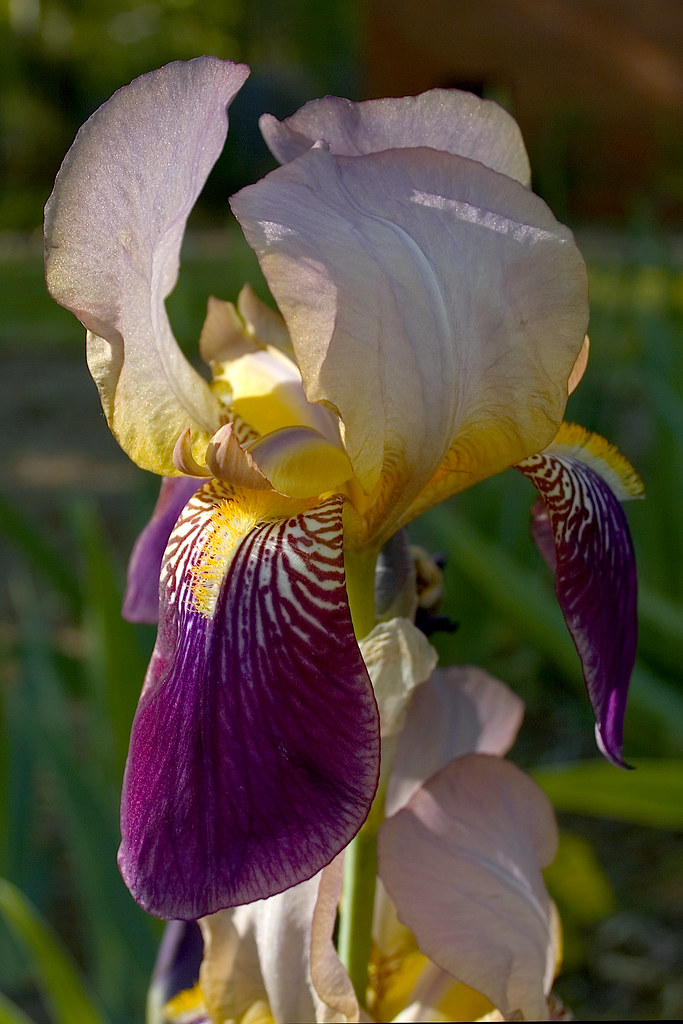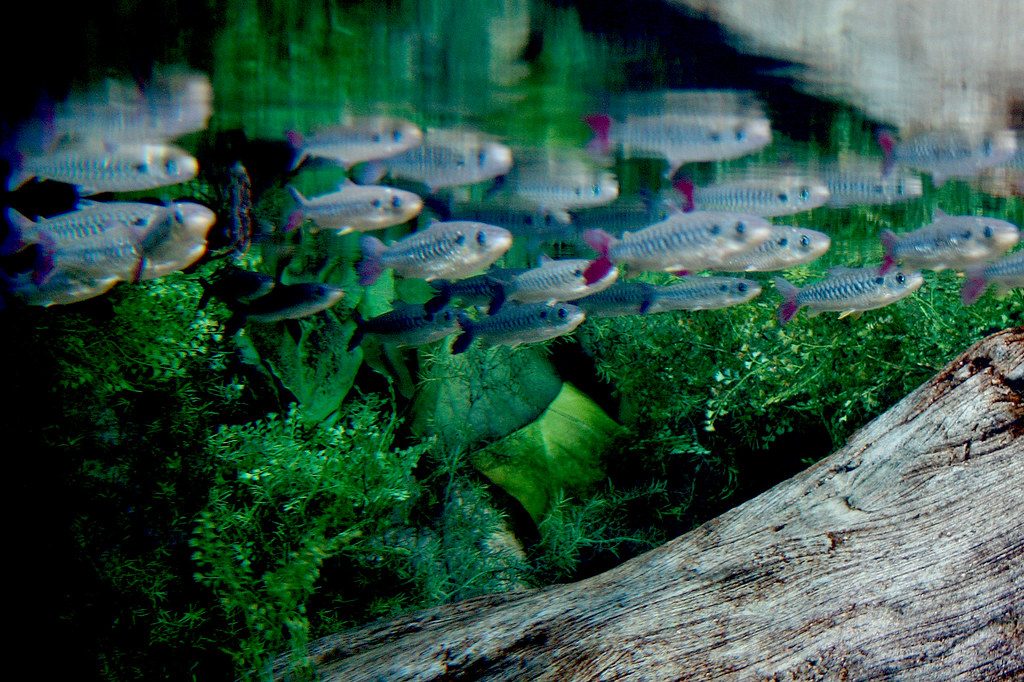Saturday, June 30
God's Grandeur
The world is charged with the grandeur of God.
It will flame out, like shining from shook foil;
It gathers to a greatness, like the ooze of oil
Crushed. Why do men then now not reck his rod?
Generations have trod, have trod, have trod;
And all is seared with trade; Bleared, smeared with toil;
And wears man's smudge and shares man's smell: the soil
Is bare now, nor can foot feel, being shod.
And for all this, nature is never spent;
There lives the dearest freshness deep down things;
And though the last lights off the black West went
Oh, morning, at the brown brink eastward, springs--
Because the Holy Ghost over the bent
World broods with warm breast and with ah! bright wings.
-- Gerard Manley Hopkins
Posted by
rb
at
6/30/2007
![]()
Wednesday, June 27
Dictated by objects, we tend to see art from the vantage point of the finish line. In the same way that we date a work according to its moment of completion and place it into the generational time frame of when it caught our attention, we accept the sum of a creative endeavor as an indivisible totality unto itself, never quite accounting for the amorphous gestation period and perverse puddle of "inspirations" at its source...
-- Carlo McCormick, in "A Crack in Time" from The Downtown Book, ed. Marvin J. Taylor
Posted by
rb
at
6/27/2007
![]()
Tuesday, June 26
stopped in your tracks
An authentic work of art embodies intense energy. It demands response. You can either avoid it, shut it out, or meet it and tussle. It contains attractive and complicated energy fields and a logic all its own. It does not create desire or movement in the receiver, rather it engenders what James Joyce labelled 'aesthetic arrest'. You are stopped in your tracks. You cannot easily walk by it and go on with your life. You find yourself in relation to something that you cannot readily dismiss.
-- Anne Bogart A Director Prepares
Posted by
rb
at
6/26/2007
![]()
Thursday, June 21
phosphorescence
It grew darker with the westing of the moon. There was light on the western tops of the dunes, a fainter light on the lower beach and the breakers; the face of the dunes was a unity of dusk.
The tide had ebbed in the pools, and their edges were wet and dark. There was a strange contrast between the still levels of the pool and the seethe of the sea. I kept close to the land edge of the lagoons, and as I advanced my boots kicked wet spatters of sand ahead as they might have kicked particles of snow. Every spatter was a crumb of phosphorescence; I walked in a dust of stars. Behind me, in my footprints, luminous patches burned. With the double-ebb moonlight and tide, the deepening brims of the pools took shape in smouldering, wet fire. So strangely did the luminous speckles smoulder and die and glow that it seemed as if some wind were passing, by whose breath they were kindled and extinguished. Occasional whole breakers of phosphorescence rolled in out of the vague sea—the whole wave one ghostly motion, one creamy light—and, breaking against the bar, flung up pale sprays of fire.
-- Henry Beston The Outermost House
Posted by
rb
at
6/21/2007
![]()
Wednesday, June 20
A Way to Look at Things
We have not yet made shoes that fit like sand
Nor clothes that fit like water
Nor thoughts that fit like air.
There is much to be done—
Works of nature are abstract.
They do not lean on other things for meanings.
The sea-gull is not like the sea
Nor the sun like the moon.
The sun draws water from the sea.
The clouds are not like either one—
They do not keep one form forever.
That the mountainside looks like a face is accidental.
-- Arthur Dove
Arthur Dove
Posted by
rb
at
6/20/2007
![]()
Tuesday, June 19
Monday, June 18
About Such Stuff
Such Stuff is not a personal journal. It is a photoblog and commonplace book. The quotes are from my library or from the internet, always with an eye to Fair use. Anyone who needs to explore them further is encouraged to turn to the source. The photographs are original studies unless otherwise attributed. They are copyrighted with all rights reserved. Please contact me if you want to use them.
Posted by
rb
at
6/18/2007
![]()
Sunday, June 17
Snow
Late December: my father and I
are going to New York, to the circus.
He holds me
on his shoulders in the bitter wind:
scraps of white paper
blow over the railroad ties.
My father liked
to stand like this, to hold me
so he couldn't see me.
I remember
staring straight ahead
into the world my father saw;
I was learning
to absorb its emptiness,
the heavy snow
not falling, whirling around us.
-- Louise Glück
Posted by
rb
at
6/17/2007
![]()
Saturday, June 16
a bat flew forth
How moving the scene there in the gathering twilight, the last glimpse of Erin, the touching chime of those evening bells and at the same time a bat flew forth from the ivied belfry through the dusk, hither, thither, with a tiny lost cry. And she could see far away the lights of the lighthouses so picturesque she would have loved to do with a box of paints because it was easier than to make a man and soon the lamplighter would be going his rounds past the presbyterian church grounds and along by shady Tritonville avenue where the couples walked and lighting the lamp near her window where Reggy Wylie used to turn his freewheel like she read in that book The Lamplighter by Miss Cummins, author of Mabel Vaughan and other tales. For Gerty had her dreams that no-one knew of. She loved to read poetry and when she got a keepsake from Bertha Supple of that lovely confession album with the coralpink cover to write her thoughts in she laid it in the drawer of her toilettable which, though it did not err on the side of luxury, was scrupulously neat and clean. It was there she kept her girlish treasure trove, the tortoiseshell combs, her child of Mary badge, the whiterose scent, the eyebrowleine, her alabaster pouncetbox and the ribbons to change when her things came home from the wash and there were some beautiful thoughts written in it in violet ink that she bought in Hely's of Dame Street for she felt that she too could write poetry if she could only express herself like that poem that appealed to her so deeply that she had copied out of the newspaper she found one evening round the potherbs. Art thou real, my ideal? it was called by Louis J Walsh, Magherafelt, and after there was something about twilight, wilt thou ever? and ofttimes the beauty of poetry, so sad in its transient loveliness, had misted her eyes with silent tears for she felt that the years were slipping by for her, one by one...
-- James Joyce Ulysses
Happy Bloomsday!
Bloomsday (Wikipedia)
James Joyce and Bloomsday links at wood s lot
Posted by
rb
at
6/16/2007
![]()
Thursday, June 14
the qualitative difference
Style for the writer, no less than colour for the painter, is a question not of technique but of vision: it is the revelation, which by direct and conscious means would be impossible, of the qualitative difference, the uniqueness of the fashion in which the world appears to each one of us, a difference which, if there were no art, would remain the secret of every individual.
-- Marcel Proust In Search of Lost Time
Translated by Ian Patterson
Posted by
rb
at
6/14/2007
![]()
Wednesday, June 13
Saturday, June 9
Perhaps the hand in dreaming
of being a star sower
made forgotten music echo
Tal vez la mano, en sueño,
del sembrador de estrellas,
hizo sonar la música olvidada
like a note from an enormous lyre,
and to our lips a tiny wave
came with a few true words.
como una nota de la lira inmensa,
y la ola humillde a nuestros labios vino
de unas pocas palabras verdaderas.
-- Antonio Machado
Translated by Willis Barnstone
Posted by
rb
at
6/09/2007
![]()
Friday, June 8
in what that beauty consisted
I have often tried to determine in what that beauty consisted, and how it would be possible for me to describe it if I wished to disclose the secret to another mind. "What!" someone will say, "do you mean that external objects, without color or shape, in disorder and unlighted, can take on an aspect that appeals to the eyes and the mind?" None but a painter could ever say to me: "Yes, I understand." He would recall Rembrandt's Philosopher in His Study: that enormous room, three-fourths in darkness, those endless stairways which wind no one knows how; those vague lights (which blaze up and go out, you know not why, in different parts) of the picture; that whole scene, indefinite yet clear; that powerful coloring, which after all is only light brown and dark brown; that magical use of chiaroscuro, that play of light and shadow on the most trivial objects, a chair, a jug, a copper urn; and lo! those objects which do not deserve to be glanced at, much less to be painted, become so interesting, so beautiful after their manner, that you cannot take your eyes from them. They have received the breath of life, they exist.
-- George Sand Consuelo
Translated by George Burnham Ives
Rembrandt's Philosopher in His Study
Posted by
rb
at
6/08/2007
![]()
Thursday, June 7
Their Lonely Betters
As I listened from a beach-chair in the shade
To all the noises that my garden made,
It seemed to me only proper that words
Should be withheld from vegetables and birds.
A robin with no Christian name ran through
The Robin-Anthem which was all it knew,
And rustling flowers for some third party waited
To say which pairs, if any, should get mated.
Not one of them was capable of lying,
There was not one which knew that it was dying
Or could have with a rhythm or a rhyme
Assumed responsibility for time.
Let them leave language to their lonely betters
Who count some days and long for certain letters;
We, too, make noises when we laugh or weep:
Words are for those with promises to keep.
-- W.H. Auden
Posted by
rb
at
6/07/2007
![]()
Wednesday, June 6
the form
I conceived of the garden as a poem in stanzas. Each terrace contributes to the garden as a whole in the same way each stanza in a poem has a life of its own, and yet is part of a progressive whole as well.
The form provides some degree of repose, letting our mind rest in the comparatively manageable unit of the stanza, or terrace. Yet there is also a need to move on, to look beyond the stanza, into the poem as a whole.
Often, when you finish reading a poem, the impulse is to revisit the beginning now that you've been all the way through it, and then each subsequent trip through the poem is different and colored by having seen the whole thing.
Once you have perceived the garden as a whole, the individual tiers of the garden take on a different form because you have seen them both as a part and as a whole. One of the mysteries of gardening is that the garden reflects the viewer's own state of being at the time, just as your response to a poem lets you know something about your preoccupations or your susceptibility as you read it.
-- Stanley Kunitz The Wild Braid
Posted by
rb
at
6/06/2007
![]()
Monday, June 4
[The style of old age] is not always a product of the years; it is a gift implanted along with his other gifts in the artist, ripening, it may be, with time, often blossoming before its season . . . : it is the reaching of a new level of expression, such as the old Titian's discovery of the all-penetrating light which dissolves the human flesh and the human soul to a higher unity; or such as the finding by Rembrandt and Goya, both at the height of their manhood, of the metaphysical surface which underlies the visible in man and thing, and which nevertheless can be painted; or such as The Art of Fugue which Bach in his old age dictated without having a concrete instrument in mind, because what he had to express was either beneath or beyond the audible surface of music.
-- Hermann Broch, in the introduction to On the Iliad by Rachel Bespaloff
Translated by Mary McCarthy
Posted by
rb
at
6/04/2007
![]()
Sunday, June 3
another play
While I was sitting one night with a poet friend watching a great opera performed in a tent under arc lights, the poet took my arm and pointed silently. Far up, blundering out of the night, a huge Cecropia moth swept past from light to light over the posturings of the actors. "He doesn't know," my friend whispered excitedly. "He's passing through an alien universe brightly lit but invisible to him. He's in another play; he doesn't see us. He doesn't know. Maybe it's happening right now to us."
-- Loren Eiseley The Invisible Pyramid
Loren Eiseley
Posted by
rb
at
6/03/2007
![]()
Saturday, June 2
that fleeting sensation of appearance
The beautiful appearance of the dream-worlds, in creating which every man is a perfect artist, is the prerequisite of all plastic art, and in fact, as we shall see, of an important part of poetry also. In our dreams we delight in the immediate apprehension of form; all forms speak to us; none are unimportant, none are superfluous. But, when this dream-reality is most intense, we also have, glimmering through it, the sensation of its appearance . . . And it is not only the agreeable and friendly pictures that he experiences in himself with such perfect understanding: but the serious, the troubled, the sad, the gloomy, the sudden restraints, the tricks of fate, the uneasy presentiments, in short, the whole Divine Comedy of life, and the Inferno, also pass before him, not like mere shadows on the wall—for in these scenes he lives and suffers—and yet not without that fleeting sensation of appearance. And perhaps many will, like myself, recall that amid the dangers and terrors of dream-life they would at times, cry out in self-encouragement, and not without success: "It is only a dream! I will dream on!"
-- Friedrich Wilhelm Nietzsche The Birth of Tragedy
Translated by Clifton P. Fadiman
about The Birth of Tragedy
Posted by
rb
at
6/02/2007
![]()
